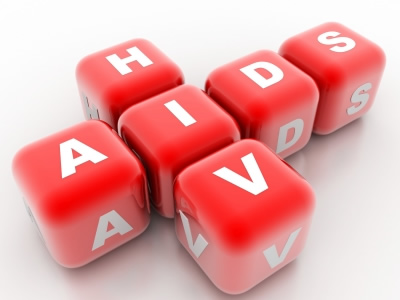Towards an HIV vaccine

Munya Chimwara Correspondent
Today (May 18) is HIV Vaccine Awareness Day and developing a vaccine that can prevent HIV, the virus that causes AIDS, must remain a top priority for global human health.
Over the last half of the 20th century, diseases that were once common became rare in the developed world, due primarily to widespread immunisation. A safe, effective, licensed and widely accessible HIV vaccine could do the same for HIV, a disease that has had devastating effects throughout the world.
A vaccine is a substance that gives long-lasting protection from infection; some vaccines require periodic boosting. Preventive vaccines have been used for decades around the world, and have been shown to be safe and effective, and overwhelmingly cheaper than treating diseases.
We currently do not have an HIV vaccine, but major progress has been made in research. Efficacy trials of promising test vaccines have been critical in moving the field forward.
These types of trials involve thousands of participants, and are designed to investigate whether the test product, which has passed smaller trials, works to prevent infection. In 2009, the HIV vaccine field was reinvigorated by results from an efficacy trial known as RV144 conducted in Thailand.
RV144 found a modest level of protection from an experimental vaccine, and researchers are working to improve the strength of the vaccine by altering its design as well as the timetable of offering it in clinical trials.
Vaccine development is always a long-term process, and recent advances are encouraging. Currently, three different approaches are in (or moving to) large-scale trials — two of them are testing vaccine candidates and one is investigating vaccine-related approach.
These are:
A vaccine efficacy trial (known as HVTN 702) in South Africa (started 2016),
The ‘AMP’ study in the Americas, Europe and Africa (started 2016), and
A vaccine trial (known as HPX2008/HVTN 705) in several African countries (expected to start in 2017/2018)
HVTN 702 is testing a vaccine adapted from the one in RV144, while AMP, which stands for Antibody Mediated Prevention, is testing a different approach known as ‘passive immunization’. In the AMP study, participants will receive anti-HIV antibodies directly through an intravenous infusion, commonly known as an “IV” or “getting a drip”. The findings of the AMP study will advance the HIV vaccine field.
Zimbabwe is part of the global partnership dedicated to HIV vaccine research, and is part of the AMP study.
The University of Zimbabwe-University of California San Francisco Collaborative Research Programme (UZ-UCSF)’s Seke South Clinical Research Site (CRS) was selected as a protocol-specific site by the US National Institutes of Health’s HIV Vaccine Trials Network (HVTN). Located in Chitungwiza, approximately 30 km South of Harare, Seke South CRS has successfully implemented clinical research under the Microbicide Trials Network (MTN) in the past.
The Zimbabwe study opened in 2016 and is being conducted in clinical sites located at Spilhaus and Parirenyatwa in Harare and Seke South CRSs in Chitungwiza.
Finding a safe and effective HIV vaccine that will protect people around the world is a formidable but necessary task. HIV is a powerful opponent, but our scientific understanding continues to improve all the time.
As large-scale vaccine efficacy trials move forward, researchers, advocates and communities must work together to ensure that trials are well-conducted, adhere to Good Participatory Practice (GPP) and that research reacts quickly and appropriately to the changing realities of the HIV response, including determining how to ethically include new HIV prevention options for participants in clinical trials.
Vaccines get the credit for eliminating smallpox worldwide. Soon the same will be true for polio. More recently, a vaccine against a cancer-causing virus, human papilloma virus (HPV), was approved. We hope one day to be able to add HIV to the list of diseases preventable by a vaccine.
An HIV vaccine will seal and secure the gains from the dramatic successes seen in increasing global coverage of HIV treatment, care and existing prevention options. It will add a powerful new option for prevention for the millions of people unable to use or access existing methods. And it will put us firmly on the path to ending HIV and AIDS.









Comments